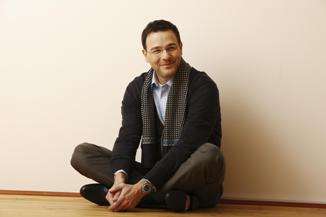|
Back
Andreas Scholl sings Vivaldi and Pärt Melbourne
Melbourne Recital Centre
10/07/2013 - & October 3 (Wollongong), 4, 5, 8, 9 (Sydney) 2013
Antonio Vivaldi: Concerto Grosso in C major, RV117 – Stabat Mater, RV621
Arvo Pärt: Da Pacem Domine – Wallfahrtslied – Es sang vor langen Jaren – Vater unser
Johann Sebastian Bach: Die Kunst der Fuge: Contrapunctus 1-4
Alfred Schnittke: String Quartet No. 3
Andreas Scholl (countertenor)
The Australian Chamber Orchestra: Helena Rathbone (violin), Rebecca Chan (violin), Christopher Moore (viola), Timo-Veikko Valve (cello), Maxime Bibeau (double bass), Neal Peres Da Costa (chamber organ), Tommie Andersson (theorbo)

A. Scholl (© James McMillan/Decca)
The warm timbre and beautiful acoustics of Melbourne’s Recital Centre were a wonderfully intimate setting for this concert of subtle pieces linked by religion and spirituality. A near capacity audience welcomed Andreas Scholl to Melbourne and appreciated the deeply emotional, at times ethereal, reading of the pieces offered.
The program was a multi-layered journey delicately stitched together on a theme of personal commitment and religious beliefs of the composers. Contemplative, sombre and thoughtful, the different pieces showcased the subtlety and virtuosity of the performers and brought to the fore the other-worldly voice of Mr. Scholl.
Vivaldi’s gentle and sombre concerto opened the performance, establishing a quiet and intense mood for the pieces to follow. The pared-down ACO produced a wonderfully lush sound and a fineness of tone which emphasised the soft and slow largo (2nd movement) balancing it against the rhythmic French mannerisms of the opening movement. The French rhythms linked it to the final item on the program, Vivaldi’s Stabat Mater.
In a last minute alteration to the program, Arvo Pärt’s instrumental Da Pacem Domine for string quartet was brought into the first part of the performance. Paring the instrumentalist down even further, it is Pärt’s tribute to the victims of the Madrid train bombings of 2004. Helena Rathbone’s first violin was commanding and penetrating while at the same time delicately finding its way through this deeply troubling and thought-provoking work.
Scnittke’s String Quartet followed immediately, linking the prayer-like quality with references to Beethoven and Shostakovich. Overall the work is funereal in its tone. Evocative and strange, its sometimes discordant elements contrasted with sweet harmonies.
To finish the first half of the program, Andreas Scholl gave the two Pärt songs ("Pilgrim's Song" and "It sang long years ago") without pause. His presence at the back of the quartet of instrumentalists spoke of subtlety and a lack of pretension. His voice is unworldly and belies the rich baritone in which he recited the poetry of the second song before singing it. He beamed pleasure in the delicacy of the songs and demonstrated superb team work with the instrumentalists, clearly deriving as much pleasure from the unity of sound achieved as did the audience. The division of the poetry into six sung stanzas, in two groups of three, laced with instrumental comment between referenced folksongs, religious liturgy and even foresaw the similar divisions in the Vivaldi Stabat Mater. The audience reaction was rapturous.
J. S. Bach’s Art of Fugue is, as stated in the program notes, a “statement of belief”, an observation of divine order imposed on a scientific branch of music. The four elements we heard questioned and answered one another weaving a pattern of rhythm, harmony and counterpoint. Here, the ACO shone brilliantly. Under-stated and refined, their performance took what might otherwise have been an academic inclusion in the program and made it a logical and clear link to the pieces of the first half of the program to the final Vivaldi piece. Each player is worthy of note: the gorgeously rich double bass; the virile and vigorous viola; both violins changing, swapping, swooping and diving around one another; the beautiful tones of the theorbo under the main strings and the distant, driving force of the organ carrying them all forward.
As a “little surprise” for the audience, Andreas Scholl announced the last minute inclusion of Pärt’s setting of the Lord’s Prayer; Vater unser. He told us that he had requested the composer arrange the piece for these performances (it was originally presented in 2005 to celebrate the 60th anniversary of the ordination of Pope Benedict XVI). He had received the final arrangement only days before presenting it with the ACO in this Australian tour. It is simple in its statement of belief and direct in its format. Mr Scholl’s reading was exquisite and audience were delighted.
The final formal item on the program was the Vivaldi Stabat Mater. Nine sections inspired by John’s Gospel express the sorrow and anguish of the mother at the suffering of her son. Andreas Scholl read grief, passion and despair into the performance before the almost joyous final call to imbue himself with love and devotion. This was a sublime performance and one which was roundly hailed by the audience.
Amid thunderous applause, the orchestra and soloist returned to give a single encore: Handel’s glorious "Ombra mai fu" from Serse. Jokingly, Mr Scholl introduced it as “a song about a tree” and began amid laughter and applause. There were gasps at his technical prowess and delight in the choice of the encore piece.
While the program made no strenuous demands on his voice, Mr Scholl gave a us a remarkable evening of music. This superb partnership with the ACO showed both orchestra and soloist to wonderful effect.
Gregory Pritchard
|